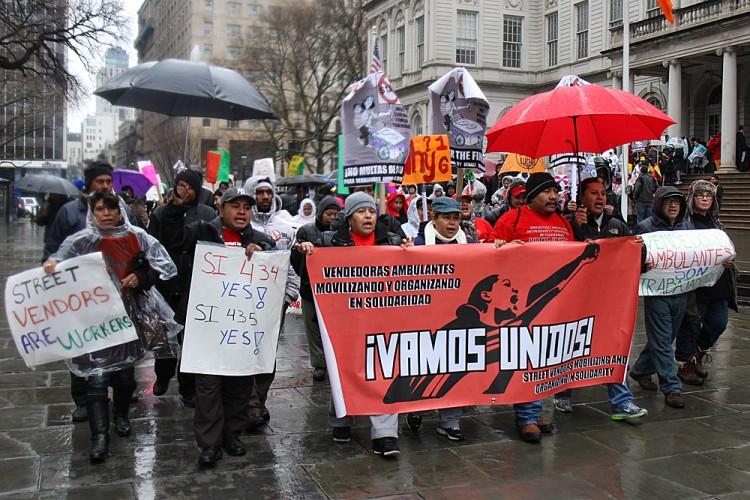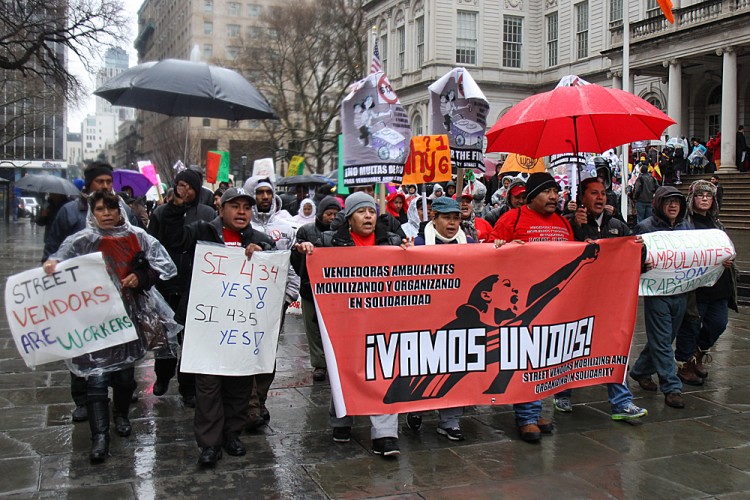NEW YORK—More than 100 street vendors and supporters rallied on the steps of City Hall on a rainy Thursday to protest what they say are excessive fines—typically $1,000—for petty violations.
Vendors receive violations for things such as being less than 20 feet from the doorway of a building, having their vendor licenses in their pockets instead of around their necks, or vending before a certain time—“Little things that reasonably should be $25 or $50,” said Sean Basinsky, director of the Street Vendor Project at the Urban Justice Center.
Three types of parking violations—including parking on a restricted street—account for more than 25,000 of the 50,000 tickets issued to vendors each year, according to a Street Vendor Project handout titled, Vendor Power-A Guide to Street Vending in New York City.
Moustapha Cisse, a Senegal native, has a vending license and often sells scarves and handbags on Seventh Avenue. He had to borrow money after receiving a $750 fine for vending on the wrong street.
“Very expensive,” said Cisse. “Too many fines are given.”
Steve Mercier, who performs in Times Square for tips, said police frequently ticket him for a range of violations.
“The Naked Cowboy has been there forever, yet they never ticket him,” Mercier added. The NYPD did not respond to inquiry as of press deadline.
The Street Vendor Project handout, Vendor Power is in five languages, including Chinese, Farsi, and Spanish. More than 8 out of 10 vendors in Lower Manhattan are born outside the United States, according to the document, while the first language for 8 out of 10 is not English. During the press conference on City Hall steps, the protesters chanted “Si Se Puede!” which translates to “Vendor Power!”
Councilman Ydanis Rodriguez, who spoke at the protest, said afterward that vendors are often faced with a touch choice.
“They have to choose between public assistance and buying and reselling [products],” he said.
Vendors include food vendors, general vendors—who sell items such as T-shirts and gloves—and First Amendment vendors, who sell items such as books and newspapers and don’t need a license.
Bills 434 and 435, introduced to the City Council in November 2010 with majority co-sponsors, were referred to the Committee on Consumer Affairs. They would make lower fines: $25 and $50 for the first violation, $50 to $100 for the second violation, $100 to $250 for a third violation, and $250 and $1,000 for any other violation. The fine scale would only apply to the same violation being issued within a two-year period.
“Vendor issues are extremely complicated, and we are looking at Intros 434 and 435,” said the office of Councilman Daniel Garodnick, who is chairman of the committee, via email.
“Vendors are part of the landscape of New York City,” said Councilman Rodriguez. “I call for my other councilmembers to support these bills.”







